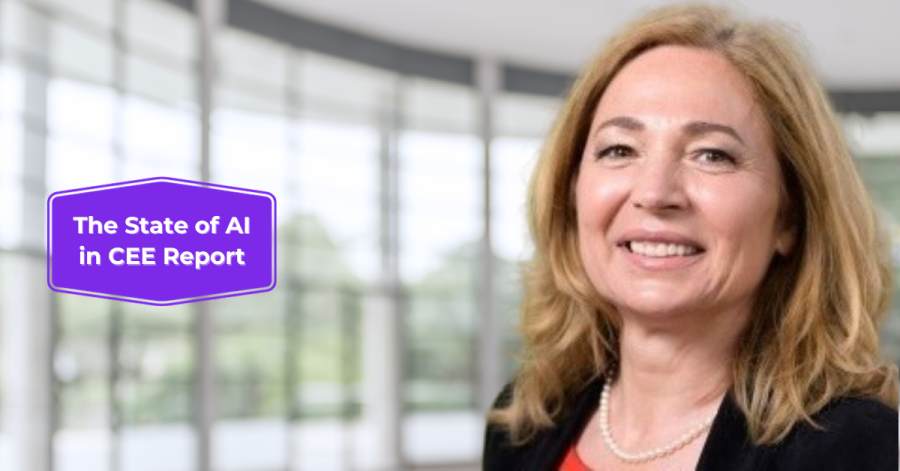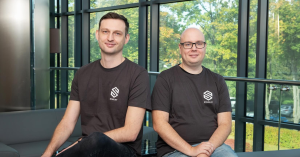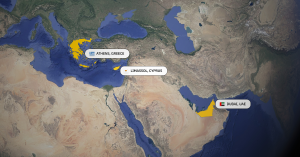“The biggest challenge which the CEE countries face with respect to AI is linked to the general lack of traditions for pushing for innovation and the absence of organizational frameworks and experience in the management of the innovation ecosystem.”
Sylvia Ilieva is a professor at the Faculty of Mathematics and Informatics and Director of GATE Institute at Sofia University “St. Kliment Ohridski”. Her research interests are in the areas of software platforms, software development processes, data management, and software engineering for AI. She has participated in over 20 European research and education projects.
GATE Institute, part of Sofia University “St. Kliment Ohridski” in Sofia, Bulgaria, offers a Master’s program titled “Big Data Technologies.” The program delves deeply into data science and big data analysis. Designed to equip students for the surging demand in data management in our digital age, the course spans over three semesters. The program boasts collaborations with software companies such as Ontotext and Rila Solutions, as well as global universities like Chalmers University and the University of Milano Bicocca.
The following interview was conducted as a part of The Recursive’s “State of AI in CEE” report. Download the full report with insights from 40+ experts and an analysis of 900 AI product companies from CEE here.
The Recursive: What are some of the most promising AI research areas or applications that your organization is currently exploring?
Prof. Sylvia Ilieva: In the Future Cities domain, GATE offers solutions using geospatial data, AI, and IoT for better city planning and enhancing citizens’ quality of life. Our semantically enriched 3D city models harness Geospatial AI (GeoAI) for knowledge discovery from vast spatial data. GeoAI merges spatial data science with AI, drawing from fields like computer science, civil engineering, and ML. While AI’s application in geography isn’t new, advancements like Generative Adversarial Networks have revolutionized it. GeoAI, with its focus on spatial relationships, offers solutions for urban planning challenges like urban heat islands and air quality.
In Digital Health, GATE centers on Big Data for digital transformation, emphasizing Translational Neuroscience. We study neurodevelopmental disorders like autism and neurodegenerative diseases like Alzheimer’s. Our R&D directions include:
- Autonomous Reinforcement Learning for Remote Detection of Motor Paroxysms: Aiming for a robust system adapting to monitoring environments.
- Multi-stable autonomous neuro-dynamics: A new framework using multi-stable models with physiologically informed parameter choices.
- Brain-like computing architectures for clinical diagnostic and surveillance purposes: Integrating Neural Network Modelling and Complex Networks for tasks like visual attention switching.
How does GATE Institute, as a part of NATO’s DIANA initiative and its recent collaboration with Quasar, plan to advance AI-focused projects for the Alliance?
NATO’s Defence Innovation Accelerator for the North Atlantic (DIANA) aims to create a vibrant ecosystem of innovators, entrepreneurs, researchers, investors, and experts in the field of security and defense so that they can co-develop next-generation technologies for the benefit of national resilience across the Alliance.
Following a successful bid with NATO’s International Secretariat, GATE was recognized to be a DIANA test center in the field of big data and artificial intelligence. Being a part of DIANA’s ecosystem, GATE is going to host innovators from Bulgaria and across the Alliance, who can bring their concepts for evaluation, verification, and validation.
GATE is also building a network of local partnerships, including that with the Center of Competence (Quasar). The objectives of our mutually reinforcing partnership include an exchange of knowledge and good practices as well as joint activities of common interest.
Are there any AI-focused NATO projects that GATE is currently working on or ones we can anticipate in the near future?
NATO’s DIANA strategy for 2023 emphasizes energy resilience, secure information sharing, and sensing and surveillance. These areas are pivotal in today’s unpredictable landscape, especially post-natural disasters or in conflict regions.
For Energy Resilience, DIANA aims for modular microgrid designs to ensure consistent supply. The Secure Information Sharing challenge focuses on establishing a trusted environment for live data streams, including real-time video and digital radio. The Sensing and Surveillance challenge seeks advanced systems for subsurface coastal monitoring, encompassing seafloor mapping, undersea infrastructure checks, marine life tracking, and climate impact sensing.
How would you evaluate the potential for growth and development in the AI innovation ecosystem in CEE and why? What is the biggest challenge in your view?
Bulgaria as well as the entire CEE world is well-positioned to play a role in the adoption of AI from an academic point of view. The potential for growth of AI applications in both industry and other spheres of society is very much in line with the common European trends due to the comparable size of the CEE economies, despite somewhat falling behind the West European economies due to historical reasons.
However, the biggest challenge that the CEE countries face with respect to AI is linked to the general lack of traditions for pushing for innovation and the absence of organizational frameworks and experience in the management of the innovation ecosystem. However, this obstacle can be overcome by the adaptation of well-established frameworks for innovation management from leading European countries, like the UK, Germany, and Sweden, for example.
What societal impacts do you foresee from the AI technologies being developed at GATE?
GATE is focusing on Responsive research and innovation and the AI technologies have very strong societal and business impact.
The GATE research aims to fight global challenges such as pandemics (Digital health area and COVID-19 HUB project), climate change (Future Cities and Digital Twin City programme, DTCC, employEMDS, FLEdge, GEO-AI projects), and disinformation (Disinformation flagship programme and BROD and TRACES projects).








